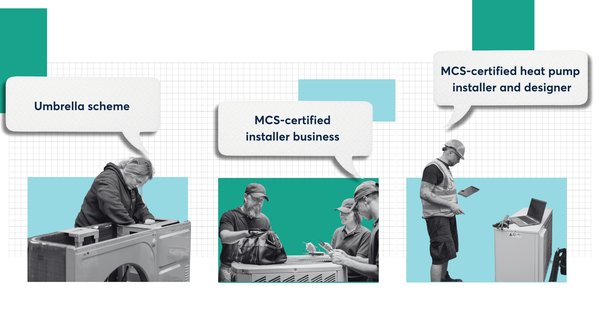Future flexibility
Power Payback is the first exposure that many of our interviewees had to a modern flexibility offerings. Based on their experience, we were keen to learn how they thought the service might be designed to work better for them. We also explored their perceptions of a future where flexibility plays a more prominent role in the way people interact with electricity.
Customers’ suggestions for Power Payback
Participants described wanting increased warning of events alongside a calendar style notification with possible events for the month. This was to help participants plan ahead to maximise their involvement. This was especially important for certain families, such as those including children with special needs, which made pre-planning more of a necessity. For example, Kaye, whose son has special needs, told us, “You'd need to be able to let them know in advance and plan things so you can then get them ready for it”. In practice, achieving more warning would have been hard to achieve because of the limited notice period that DFS operators receive that events will be needed – and indeed, this period may be even shorter as the service evolves (potentially transitioning from day-ahead to within-day procurement.
Participants also expressed a desire for greater variation in the times and days of the week that events took place. This came from the observation that times were not always convenient and that they had differing schedules on weekdays vs weekends. There was also some appetite for events to be run more often, with Gwen reflecting that, “I think it would make people more aware of their usage”. Both of these suggestions are unlikely to be consistent with the aims of infrequent, event-based flexibility schemes like the DFS. However, they could potentially be features of alternative flexibility products like time of use tariffs.
Participants noted that real-time feedback during events would be desirable so that they could keep track of their consumption. It is worth noting that one of the participants that found this aspect desirable did remark that they actually had an in-home display, but had not been monitoring it during events. Another interviewee, Damon, remarked that they would then like to be able to compare their performance between events to see whether they had been able to reduce their consumption even more:
“It would be nice to have a little side chart [showing] how much you saved on average from your previous six months’ usage, you know, ‘you've reduced your usage by 10% or five kilowatts over that hour’.”

There was a desire from those with children for Utilita to provide some additional resources to aid participation of family members. This could come in the form of physical resources such as board games, potential competitions via an app, increased information for children to show which appliances should be turned off and even targeted help for children with special needs. As Kaye described it, “Utilita could [...] send out a little package for children to engage them a little bit more”.
Views on a flexible future
National Grid ESO recently confirmed that the DFS will continue to be developed for use in managing periods of high demand on a year-round basis. It’s likely that services like Power Payback – that incentivise occasional responses from customers at short notice – will remain a part of the flexibility landscape. But these services will increasingly be joined by a wider suite of offerings, including time of use tariffs (with fixed or variable rates). We talked with participants to get their thoughts on a more flexible future – both in general, and regarding their own perceived ability to benefit.
There was some familiarity with legacy time of use tariffs, such as Economy 7, which charge a cheaper off-peak rate overnight, and which a number of participants had experienced directly. Modern flexibility tariffs were seldom mentioned (with one mention of British Gas weekend savings tariffs). In our forum analysis there was more evidence of familiarity with flexibility products such as the Agile tariff from Octopus, including discussion of how these interact with the DFS.
In general, participants expressed mixed views on fixed flexibility products like time of use tariffs, and tended to be more negative than positive. Barriers cited included having fixed schedules with younger children, preference for a flat tariff for reasons of familiarity, and concern about operation of appliances overnight. Encapsulating this demand for stability, Erica shared that, “I would rather have to spend that little bit more to keep the structure in family life than lose that entire routine and then it creates chaos elsewhere.” However, she also reflected that if her children were older this could change, and a participant with older children thought that they would more easily be able to change their schedule.
It is worth highlighting that people may have quite different responses to products or services framed in general, rather than specific terms. This is associated with construal level, or the extent to which people are thinking about something in abstract or concrete terms. It is possible that providing specific details on prices and potential savings for a time of use tariff could have affected people’s perceptions of their willingness and ability to benefit from it.
People’s awareness of the reasons and need for flexibility was generally low. While relieving strain on the grid around peak times received occasional mention, people more commonly understood Power Payback to be aimed at helping save energy in general, improving knowledge about energy saving, and supporting engagement with Utilita:
“I think it's trying to make people aware of what electric they're using, whether they're wasting it.” (Gwen)

Certain groups in the population were seen as being more likely to be able to benefit from flexibility, including singles, couples, and older people who may be more likely to be at home during the day. However, concerns were not generally expressed about the potential fairness implications of this – indeed, it was seen as reasonable that some households should pay more because of when they were using electricity. As Erica, who has children, commented:
“It's not 100% fair, but when you look at it from that point of view [...] it's understandable because we would be using more. So why wouldn't we pay more because we're using [electricity] in that period of time, whereas a couple or a person on their own wouldn't be. So you wouldn't expect them to pay more.”
This should be considered in the context of the earlier discussion around dissatisfaction with events coinciding with the evening peak, especially where children are present. It’s possible that as penetration of flexibility services increases, this inability of some households to respond could be felt more keenly.
As part of Nesta’s ongoing work on home decarbonisation, we’re keen to support the development of services that enable a broader range of households to benefit from providing flexibility. The next section describes the development of a number of user personas, based on this research, that we and others can use and develop when thinking about inclusive service design.








